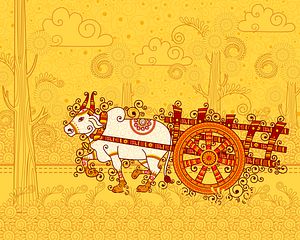As The Diplomat noted last month, “the London-based PR outfit Portland Communications released its second annual list of nations with the greatest magnitude of ‘soft power.’” To the surprise of many, India wasn’t listed among the top 30 countries in terms of soft power, instead placing 34th. The report primarily recommends that India invest more in education to improve its soft power. Here are five other cultural projects that India should engage in in order to develop its soft power. India has a lot of cultural potential to share with the world and if it pursued the right strategies, it could really have a greater global impact.
Cultural institutes. Germany has the Goethe Institut, China has its Confucius institutes, and France has the Alliance Francaise. These are hip, non-profit institutions with branches in all major cities throughout the world, as well as major universities, where they offer individuals the chance to learn foreign languages and attend cultural events such as movie showings and cooking classes. India needs to invest more in its equivalent cultural institute, the Indian Council for Cultural Relations (ICCR), or create a newer, more youth-oriented institute. It wouldn’t hurt to also come up with a more memorable brand name.
Museums. India most certainly needs a world-class museum on par with the great museums of the world; the museum should be a repository for South Asia’s treasures, but also seek artifacts from all over the world. The museum should cater to both an international and domestic audience. India’s National Museum does not even feature on most lists of top museums throughout the world. There are dozens of museums, including many in Asia, that have over a million visitors a year, but none are in India. For a would-be superpower with such a treasure trove of art and sculpture, India deserves a world-class museum.
Sports. India should invest more in sports, and not only for the sake of winning more medals at the Olympics. As a large, topographically diverse country, it should encourage both domestic and international visitors, especially newly monied middle-class types, to partake in activities that they would otherwise have to fly to Europe or America for. For example, India has extensive mountain slopes and some skiing ranges, but it is not widely known as a skiing range. Like Iran, India can develop a major skiing culture, attracting would-be skiers from neighboring, warmer third-world countries in the Middle East and Southeast Asia.
Tourism. India should do a better job at crafting an image of itself and its history that goes beyond just the Taj Mahal and a few Rajput forts, both to increase tourism and draw tourists to all its states, and to increase interest in its culture and history among the average person in the West. Visitors to Europe are treated to any number of picturesque castles and cathedrals, and even smaller countries like Croatia and Iceland are popular and have well-preserved monuments. India should do more to draw tourists to beautiful but relatively unvisited sites such as the Sun Temple in Orissa, the ruins of Hampi in Karnataka, or the Spiti Valley in Himachal Pradesh.
Cinema. India makes more movies a year than any other country and Bollywood films are popular throughout the Middle East and Central Asia. Yet, India has done little to convert this love of its movies (and songs) into a desire for people to go to India or learn more about it (like the way Japan has used anime to promote itself throughout the world). India needs better, more consistent marketing; it isn’t enough for Prime Minister Narendra Modi to travel the world to bring attention to India. This applies not just to movies, but to lesser known cultural products that can be set up to compete with other similar customs. For example, India is not known for martial arts the way China and Japan are, but it is possible to change this. Muay Thai from Thailand has recently become more popular so there is no reason that Kalaripayattu from the Indian state of Kerala should not as well.

































